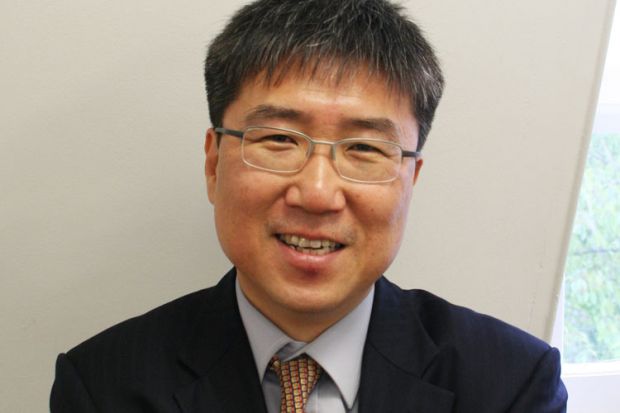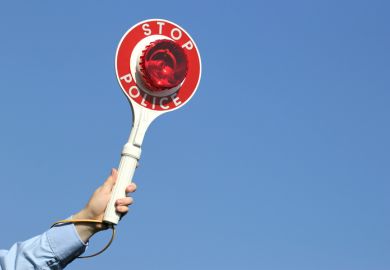Source: Discott
A leading economist has argued that his profession has much to learn from the alternative perspectives provided by science fiction.
Ha-Joon Chang, reader in the political economy of development at the University of Cambridge, is the author of the best-selling books 23 Things They Don’t Tell You about Capitalism and Economics: The User’s Guide. He has also written about his passion for science fiction. In a lecture delivered at Goldsmiths, University of London earlier this week, “What Can Economics Learn from Science Fiction?”, he took the opportunity to bring together these distinct areas of interest.
On one level, said Dr Chang, much economic thinking could best be seen as “science fiction”. It claimed to be “science”, but ignored political and ethical factors and relied on such simplified ideas of the individual, the firm and the market that its analyses were largely “fiction”.
Equally problematic, in his view, is the belief of many economists (and particularly neoclassical economists) that progress in science and technology could solve virtually all our problems – and that the right incentives alone will enable us to tackle challenges such as water shortages and climate change. It is here, he said, that they would do well to take a look at science fiction.
Like many other books and movies, said Dr Chang, the Terminator films and the Matrix trilogy depict technologies far in advance of the times they were created in. Yet far from revealing such worlds as more satisfying to live in, as many economists have us believe, they show how destructive such technologies can be if they fail to take account of human needs, get out of human control or fall into the wrong hands.
Other books and films offer us post-apocalyptic scenarios without modern technologies, states or property rights, and where people behave much like the self-seeking rationalists apparently idealised by neoclassical economists. Again the results are terrifying rather than attractive, with the Mad Max movies only a particularly extreme example. Meanwhile, Kurt Vonnegut’s Player Piano and Aldous Huxley’s Brave New World can teach us about the value of work and the dangers of consumerism, even in societies where everybody has their basic needs satisfied.
Yet just as science fiction can help us to reconsider our assumptions about the economy and society, continued Dr Chang, so too can historical or comparative research. Once we realise that child labour has been acceptable in other times and places or even that most countries didn’t grant substance patents to pharmaceutical and other chemical “inventions” until the 1960s or 1970s, we will stop believing in the “natural laws” of economies and markets and see that they have often been modified by political decisions and human actions – and could and should be again.
Dr Chang’s lecture was the launch event for Goldsmiths’ new Political Economy Research Centre, set up in parallel with a BA in politics, philosophy and economics in “response to recent critiques of orthodox economics, as immune to interdisciplinarity and cut off from historical and political events”. It is based in the politics department, but has close links to sociology, media and other departments, and aims to “refresh ‘political economy’, in the original sense of the term, as a pluralist and critical approach to the study of capitalism”.
Register to continue
Why register?
- Registration is free and only takes a moment
- Once registered, you can read 3 articles a month
- Sign up for our newsletter
Subscribe
Or subscribe for unlimited access to:
- Unlimited access to news, views, insights & reviews
- Digital editions
- Digital access to THE’s university and college rankings analysis
Already registered or a current subscriber? Login





